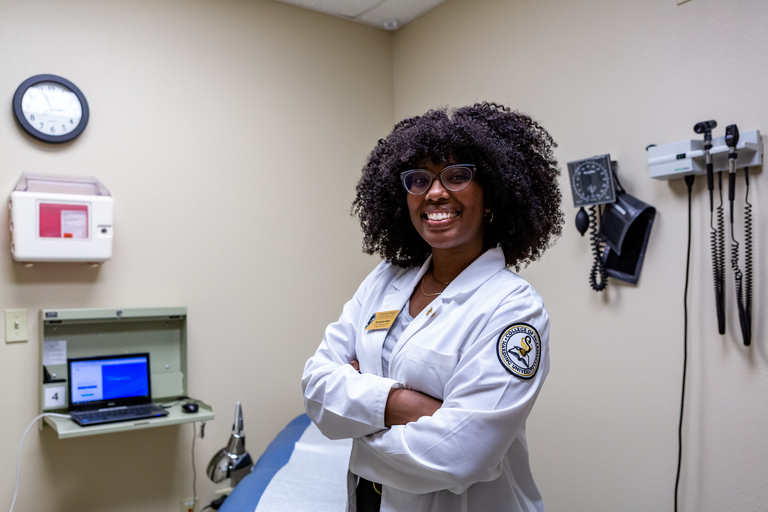by Richard Ward, Pharm.D., M.S.
Assistant Dean for Admissions, Director of Experiential Education

When you think of a pharmacist, you might picture the friendly faces behind the counter at your local pharmacy or the dedicated professionals in a hospital carefully preparing your medications. These traditional roles are incredibly important — they serve as the final safeguard to ensure you receive the right medicine safely. But pharmacists do so much more than just dispense medications. Earning a Doctor of Pharmacy opens up a world of opportunities. With a Pharm.D., graduates gain a diverse set of skills that allow them to explore various career paths within and beyond classic pharmacy settings. Their comprehensive education covers everything from clinical pharmacology and pharmaceutical care to patient-centered practices.
In clinical settings, Pharm.D. professionals become essential members of health care teams, working closely with doctors and other health care providers to optimize your medication therapy. Their expertise in pharmacotherapy, medication management and patient education means they can offer personalized care, help you stay on track with your medications, and improve your overall health outcomes, no matter your condition. Pharmacists can work in places like clinics, outpatient hospitals, veterans’ health facilities and hospitals. They might also specialize in areas such as heart health, emergency care, nuclear medicine, cancer treatment, pediatrics, poison control, mental health or even veterinary medicine.
Beyond the clinical realm, pharmacists are making significant impacts in non-traditional fields like education, health care consulting, managed care, public health and health care administration. Whether they're conducting important research, shaping policies, managing drug formularies or leading initiatives to improve health care quality, Pharm.D. graduates play vital roles in enhancing patient care.
Ultimately, a Pharm.D. offers so much more than the classic roles of dispensing medications in a pharmacy. With their thorough education, clinical skills, and ability to collaborate across different disciplines, Pharm.D. professionals thrive in a variety of settings. They make meaningful contributions that enhance patient outcomes, advance health care services and help shape the future of pharmacy.
At Harding University’s College of Pharmacy, students are meticulously prepared to embrace these diverse career opportunities. The program’s curriculum is designed to be both rigorous and expansive, offering students hands-on experience in various health care settings from the start. With a strong emphasis on clinical practice and patient care, Harding equips its graduates with the practical skills and knowledge needed to excel in traditional roles like community and hospital pharmacy while also encouraging exploration into specialized fields such as oncology, cardiology, and infectious disease.
To learn more about the College of Pharmacy, schedule a visit or see our program page.